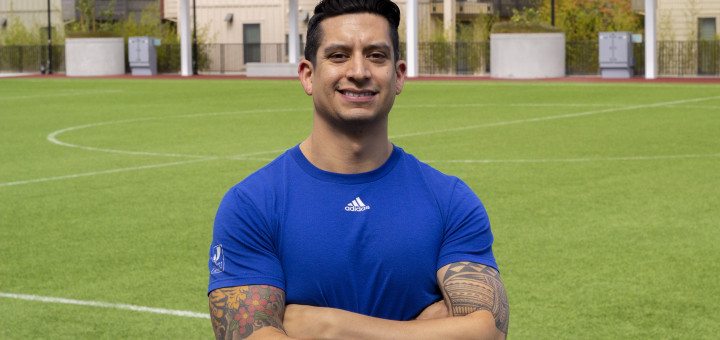The Oshman Family JCC is lucky to have Master Trainer and health & wellness expert Jorge Garza-Contreras, Doctor of Chiropractic as a resource and source of inspiration. We sat down with him to speak about his 2018 New Year’s Resolution and why it still matters today. Two years ago, Jorge resolved not to eat on every Jewish fast day. While he is not Jewish, he has been a trainer at the Taube Koret Campus for Jewish Life for over nine years. Jorge has interacted with members of all walks of life and takes a cultural and academic approach to fasting.
Q: What got you into fasting?
A: In doing a bit of research, I discovered that many religions have fasting as part of their practice. Naturally, I became curious about the history of fasting and the science-based side to fasting. I reached out to my friend, Rabbi Joseph Felsen, an Orthodox Jewish rabbi and CEO of the Jewish Study Network in Palo Alto, CA, to help answer questions about some of the history and practice of fasting. In the process, I have enhanced my own practice of fasting and find it to be beneficial for me in unexpected ways. In 2018, I decided to fast on every Jewish fast day as my new year’s resolution.
Q: Did you learn anything interesting while you were fasting?
A: You realize how lucky you are to have access to food. When you are fasting, you begin to experience hunger and, unfortunately, this is what many people experience in other parts of the world where hunger is more prevalent.
Q: As a health and wellness expert, do you have any comments on intermittent fasting vs. religious fasting?
A: In reviewing the medical literature, I learned that intermittent fasting can have multiple benefits. Most of the benefits are gut health-related, but there are also some biomarker benefits such as insulin resistance. Those that do experience weight loss while doing intermittent fasting are not benefiting from some magic window, but rather are most likely benefiting from calorie restriction, as they are cutting out late-night snacking. Of course, you should consult your doctor before trying out any new major change in your diet.
In a religious context, it used to be a common practice to fast after a calamity, for example, in the day following a nightmare to avoid the premonition becoming reality. Similar to the idea of a “sacrifice,” giving up a resource that you cherish, it helps you come closer to something more meaningful, more spiritual or more connected in life.
Q: It is now the beginning of 2020. Have you continued to fast on every Jewish Fast day since 2018?
A: Yes. Even though this was a resolution I set back in 2018, I have done it every year since and I will continue to fast.







Comments are moderated and will not appear immediately.